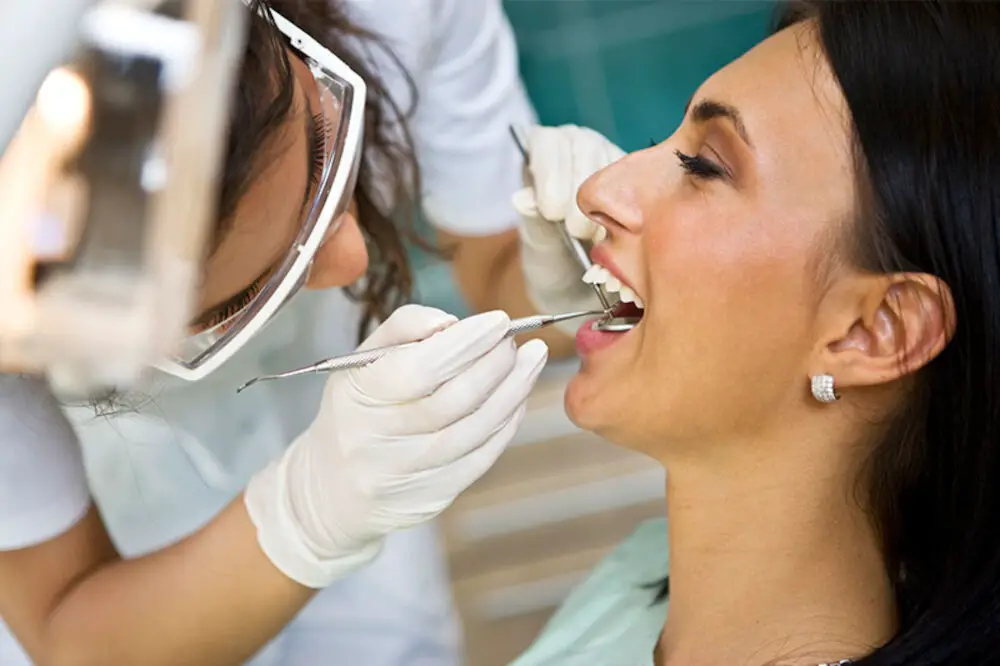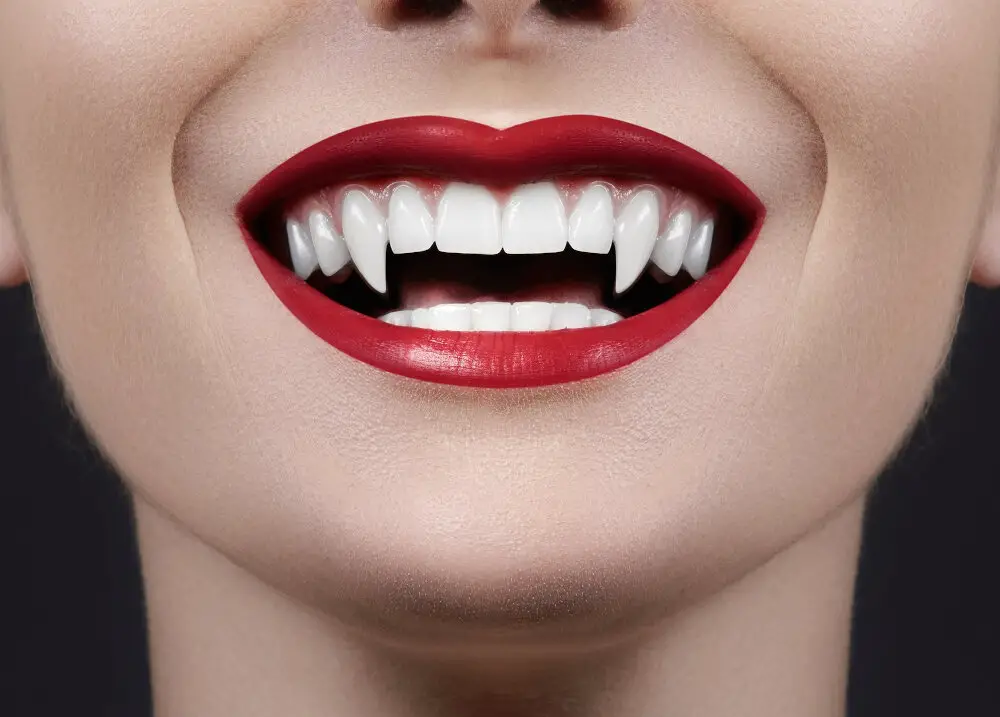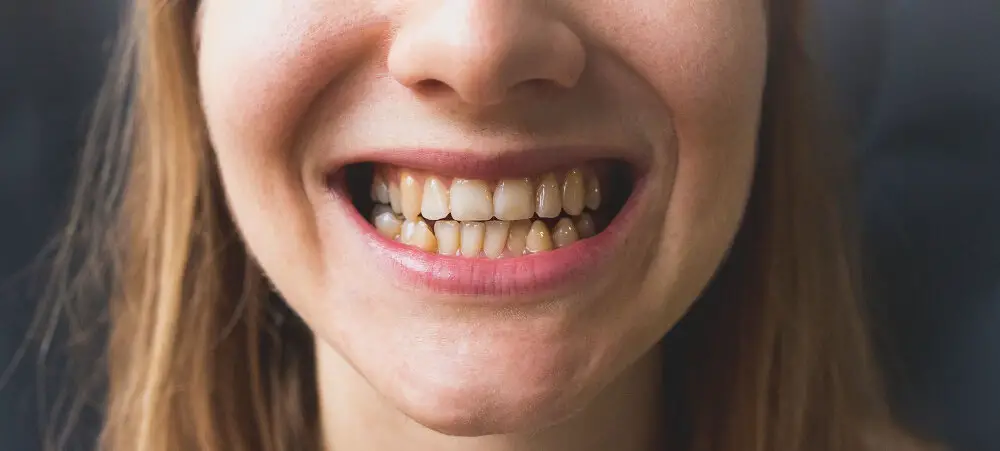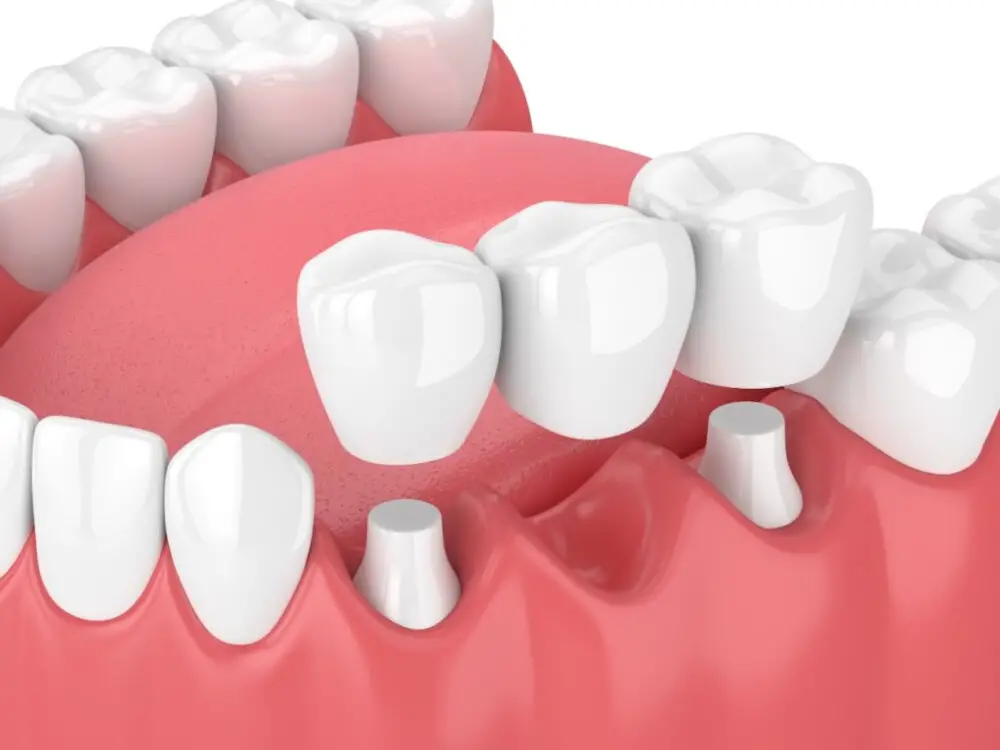Hamster Teeth 101: How Many Teeth Do Hamsters Have and What You Need to Know

Hamsters are popular pets for many families due to their cute and cuddly appearance. These small rodents are known for their playful and curious nature, and can bring joy and entertainment to any home. However, as with any pet, it is important to understand their biology and care requirements. One important aspect of hamster care that is often overlooked is their teeth. Hamsters have a unique dental structure that sets them apart from other pets. They have a total of 16 teeth, with 4 incisors at the front of their mouth and 12 molars at the back. Unlike human teeth, hamster teeth are constantly growing throughout their life, which is why it is crucial to provide them with appropriate chewing materials to wear down their teeth. Failure to do so may result in overgrown teeth, which can lead to health problems and even death. In this article, we will delve into the world of hamster teeth and provide you with all the information you need to keep your furry friend’s dental health in check.
Hamsters are small rodents that have unique teeth structures that help them with their daily activities. The average hamster has 16 teeth, 4 of which are incisors that never stop growing. Hamster teeth are essential for their survival as they use them to chew their food, gnaw on objects to keep their teeth trimmed, and defend themselves from predators. These creatures have sharp teeth that can cause a painful bite, so it’s essential to handle them with care. Owners should also provide them with chew toys or sticks to prevent their teeth from becoming overgrown and causing dental issues. Understanding hamster teeth is critical for their well-being as it ensures they can eat and live comfortably.
Understanding hamster teeth is crucial for every hamster owner, as it can help in preventing potential dental problems. Hamsters have a unique set of teeth that continuously grow throughout their lifetime, and they require proper care to maintain their oral health. Overgrown teeth can lead to painful dental issues such as abscesses, malocclusion, and tooth loss, which can affect a hamster’s overall health and well-being. Therefore, it is essential to ensure that hamsters have access to chew toys and a healthy diet rich in fiber to keep their teeth trimmed and strong. Regular veterinary check-ups can also help detect any dental problems early and prevent them from becoming severe. By understanding hamster teeth, owners can ensure that their pets lead a healthy and happy life.
How many teeth do hamsters have?

Hamsters are small and adorable creatures that make great pets. They are known for their tiny size, fluffy fur, and their little paws. But, have you ever wondered how many teeth a hamster has? Hamsters have a total of 16 teeth, which is a relatively small number compared to other rodents. These teeth are divided into four incisors and twelve molars, which are used for grinding and chewing food. Hamsters are known for their gnawing behavior, which helps keep their teeth healthy and sharp. Hamsters’ teeth are constantly growing, and they need to be filed down regularly to prevent overgrowth. This is why it’s essential to provide them with hard objects like wooden chew toys, mineral blocks, or even cardboard tubes to gnaw on. Without proper dental care, hamsters’ teeth can become overgrown, leading to serious health problems, including difficulty eating and even death. Therefore, it’s crucial to monitor your hamster’s teeth and provide them with appropriate items to chew on to keep them healthy and happy.
Hamsters are small rodents that belong to the Cricetidae family, and they are well known for their sharp teeth. Typically, hamsters have around 16 teeth, which consist of four incisors and twelve molars. The incisors are located at the front of their mouths and are used for biting and gnawing on food, while the molars are located towards the back of their mouths and are used for grinding and chewing their food. These teeth grow continuously throughout their lives, meaning hamsters need to chew on hard objects to keep them from becoming too long. It’s important to note that hamsters’ teeth are incredibly sharp, so be careful when handling them. Additionally, if you notice any changes in their teeth’s appearance or behavior, it’s best to consult with a veterinarian to ensure they’re healthy.
Hamsters are known for their sharp teeth that never stop growing. These small rodents have four types of teeth, including incisors, canines, premolars, and molars. The incisors are the two noticeable teeth at the front of the mouth, used for gnawing and cutting. The canines are the next set of teeth and are located just behind the incisors. These teeth are used for biting and tearing. The premolars are located behind the canines and are used for grinding and chewing. The molars are the last set of teeth at the back of the mouth, and they are the largest and flattest teeth, used for grinding and crushing food. Knowing about these different types of teeth can help you understand your hamster’s eating habits and dental health. It’s essential to ensure that your hamster’s teeth are not overgrown, as this can lead to painful dental problems.
Why do hamsters need their teeth?

Hamsters are known for their sharp teeth that never stop growing. Their teeth serve a crucial purpose in their survival in the wild and in captivity. In the wild, hamsters use their teeth to gnaw on various objects to wear them down. This behavior helps keep their teeth at the optimal length, preventing them from overgrowing and causing dental issues. Hamsters also use their teeth to break open hard-shelled nuts and seeds, which are a staple in their diet. Without their teeth, hamsters would struggle to find food and would eventually starve to death. In captivity, hamsters need their teeth to chew on their food and toys, which helps keep them mentally stimulated and physically active. Hamsters’ teeth are constantly growing, and they need to wear them down to prevent dental issues such as overgrowth, misalignment, and infection. In captivity, hamsters can develop dental problems if they do not have access to objects they can gnaw on, such as wooden blocks or chew toys. Dental issues can cause pain and discomfort, making it difficult for hamsters to eat and drink. In severe cases, untreated dental issues can lead to malnutrition, dehydration, and even death. Owners should regularly check their hamsters’ teeth and provide them with appropriate objects to chew on to ensure their teeth remain healthy and functional.
Hamster teeth play a crucial role in their survival and well-being. Hamsters are rodents, and like all rodents, they have front teeth that never stop growing. These front teeth, also known as incisors, are used for cutting and gnawing. Hamsters use their incisors to bite through food, chew up bedding for their nests, and even to defend themselves if necessary. Additionally, hamsters have molars at the back of their mouth that are used for grinding and crushing food. These teeth, along with their powerful jaws, allow hamsters to consume tough foods such as seeds and nuts. As hamsters rely heavily on their teeth for their daily activities, it is essential to ensure that their teeth are healthy and well-maintained.
It is essential to maintain healthy teeth in hamsters as dental problems can lead to severe health issues. Hamsters have four incisors and molars in their upper and lower jaws, which continuously grow throughout their lives. Therefore, they need to keep their teeth in check by gnawing on hard objects like wooden blocks or mineral chews. Failure to maintain dental hygiene can lead to overgrown teeth, which can cause discomfort, difficulty in eating, and even death if left untreated. Regular teeth maintenance is crucial to ensure the well-being of your furry friend and prevent any dental complications in the future.
Common dental problems in hamsters

Hamsters, like any other pets, may encounter dental problems that may affect their overall health and well-being. One of the most common dental problems in hamsters is overgrown teeth. Hamsters have continuously growing teeth, and if they are not wearing down naturally, they can become too long and affect their ability to eat and drink. This problem can be caused by a lack of hard objects to chew on, genetics, or even misalignment of the teeth. Owners should regularly check their hamster’s teeth and provide them with chewable toys to help prevent overgrown teeth. Another dental issue that hamsters may face is tooth decay or abscesses. This problem can be caused by poor dental hygiene, a diet high in sugar, or trauma to the teeth. Owners should regularly clean their hamster’s teeth and provide them with a balanced diet to prevent tooth decay. If a hamster is suffering from an abscess, they may show signs of swelling around their face or have difficulty eating. It is important to take them to a veterinarian as soon as possible to prevent further complications. Overall, proper dental care is essential to ensure a hamster’s overall health and happiness.
Hamsters are prone to various dental problems that can cause significant discomfort and even lead to life-threatening conditions. One of the most common issues is overgrown teeth, which occurs when the hamster’s teeth do not wear down naturally, resulting in sharp points that can pierce the mouth or block the animal’s ability to eat. Dental malocclusion is another prevalent problem that causes misaligned teeth, leading to difficulty in biting and chewing. Other dental problems hamsters may face include infections, abscesses, and tooth loss. To prevent these issues, it is crucial to monitor your hamster’s teeth regularly and provide them with a healthy diet and adequate chew toys. If you notice any signs of dental problems, seek veterinary care immediately to prevent further complications.
Hamsters are prone to various dental issues that can cause them discomfort and pain. Some common symptoms of dental issues in hamsters include difficulty eating and drinking, weight loss, drooling, bad breath, and swollen gums. Hamsters with dental problems may also show signs of lethargy, decreased activity, and reluctance to play or interact with their owners. If you notice any of these symptoms in your hamster, it’s important to take them to a veterinarian who specializes in small animals as soon as possible to diagnose and treat the underlying dental issue.
Dental care is an essential aspect of hamster health. Hamsters have four incisors at the front of their mouth and molars at the back, which grow continuously throughout their lives. To promote healthy teeth growth, hamsters require a balanced diet that includes hard foods that require chewing and gnawing, such as fresh fruits, vegetables, and hay. Additionally, chew toys specifically designed for hamsters can help prevent overgrowth and keep their teeth healthy. If you notice your hamster’s teeth becoming too long or uneven, consult with your veterinarian as they may require trimming to prevent discomfort or dental problems. Regular dental check-ups are also recommended to ensure your hamster’s teeth and overall oral health are maintained.
Tips for taking care of hamster teeth

Taking care of your hamster’s teeth is crucial for their health and well-being. Hamsters have four incisors at the front of their mouth and molars at the back, which means they need to constantly gnaw on things to keep their teeth healthy and prevent them from overgrowing. Providing your hamster with chew toys such as wooden blocks, apple tree branches, or mineral chews can help keep their teeth in good condition. You can also offer them small pieces of vegetables or fruits with high water content, such as cucumber or watermelon, to help keep their teeth clean and healthy. In addition to providing chew toys and a healthy diet, it’s important to regularly check your hamster’s teeth for any signs of overgrowth or damage. Overgrown teeth can cause pain, difficulty eating, and even lead to infections or abscesses. If you notice any abnormalities, it’s best to take your hamster to a veterinarian who specializes in small animals. They can trim your hamster’s teeth or offer other treatments to get their dental health back on track. By taking good care of your hamster’s teeth, you can ensure they live a long and healthy life.
Taking care of a hamster’s teeth is essential to ensure their overall health and well-being. Hamsters have a total of 16 teeth, including four incisors and 12 molars. These teeth grow continuously throughout their life, and proper maintenance is necessary to avoid dental problems. To keep their teeth healthy, hamsters need to chew on hard objects, such as wooden toys and blocks, to wear down their teeth. Additionally, providing them with a balanced diet that includes fresh vegetables, fruits, and pellets can help prevent tooth decay. Regular veterinary check-ups are also crucial to monitor their dental health and identify any potential issues early on. Overall, taking care of a hamster’s teeth requires a combination of a healthy diet, regular chewing, and professional check-ups to ensure they remain happy and healthy.
Maintaining healthy hamster teeth is crucial for their overall health and well-being. One way to ensure that their teeth stay healthy is by providing them with proper nutrition, including a balanced diet of pellets, fresh fruits, and vegetables. Additionally, hamsters need to chew on hard objects to keep their teeth trimmed and prevent overgrowth. Providing them with wooden toys, chew sticks, and mineral blocks can help satisfy this need. Regular veterinary check-ups are also important to ensure that any dental problems are detected early and treated promptly. Lastly, ensuring that their living environment is clean and hygienic can help prevent bacterial infections that can lead to dental problems. By following these suggestions, hamster owners can help ensure their furry friends have healthy and happy teeth.
Understanding hamster teeth is crucial for any hamster owner. Hamsters have a set of 16 teeth that continuously grow, and if not properly maintained, their teeth can overgrow, causing serious health problems. Hamsters use their teeth for various activities such as chewing, gnawing, and grinding their food, as well as for self-defense. Therefore, it is essential to provide them with proper dental care and a well-balanced diet to keep their teeth healthy. Monitoring their teeth regularly for signs of overgrowth, such as difficulty eating, drooling, or weight loss, is essential to prevent any dental problems. By understanding and taking care of hamster teeth, owners can ensure their furry friends live a healthy and happy life.
In conclusion, hamster dental care is crucial for the overall well-being and health of your furry friend. As hamsters have continuously growing teeth, it is essential to provide them with appropriate chewing items to wear down their teeth and prevent overgrowth. Regularly checking your hamster’s teeth will help detect any dental problems early on, and seeking professional veterinary care is necessary if any issues arise. Additionally, a well-balanced and nutritious diet can promote healthy teeth and gums in hamsters. By making dental care a priority for your hamster, you can ensure they live a happy and healthy life.
Conclusion

In conclusion, understanding the dental anatomy and needs of your hamster is crucial in ensuring its overall health and well-being. Hamsters have a unique set of teeth that constantly grow, requiring them to have access to sturdy chew toys and a balanced diet. Neglecting their dental health can lead to serious health problems, such as dental malocclusion and abscesses, which can be painful and expensive to treat. Regular dental check-ups and proper dental care can prevent these issues and ensure that your furry friend has a healthy and happy life.







